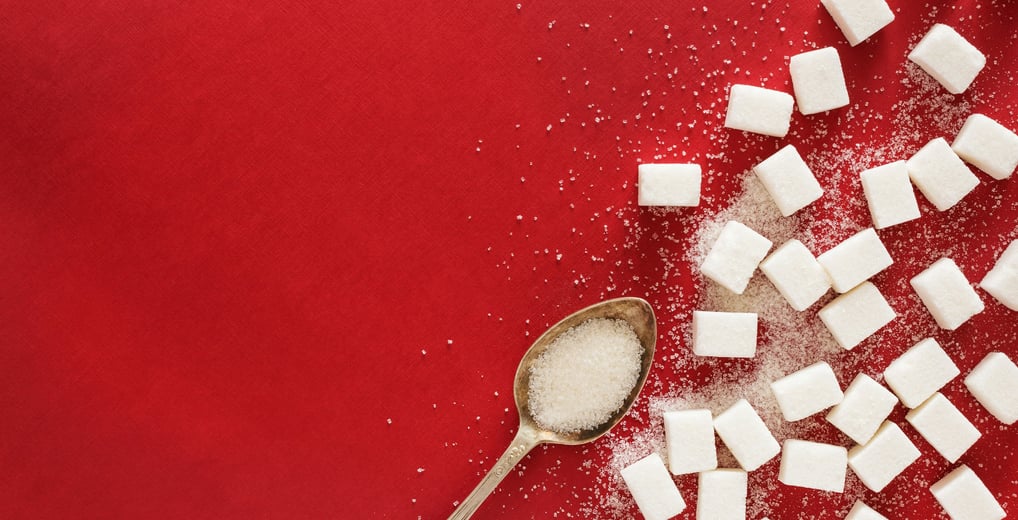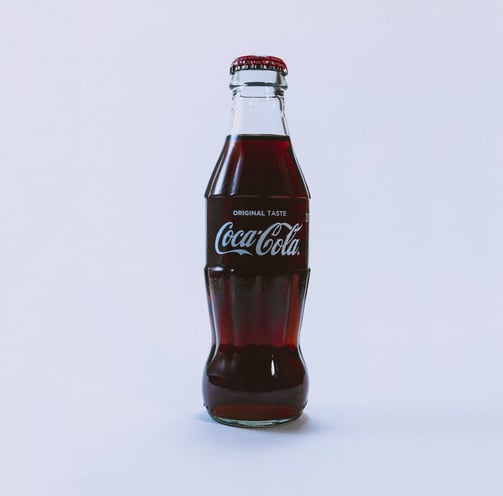The Weight of Living
I catch myself side-on in the mirror, and immediately the corrosive thoughts begin. Once again, I collapse inward, frustrated at my missing willpower.
FEATUREDBLOGHEALTH


I catch myself side-on in the mirror, and immediately the corrosive thoughts begin. Once again, I collapse inward, frustrated at my missing willpower. Here I stood, with a stomach that stretched out to resemble the curves of the London O2, and I knew, the only thing that mattered to me was my weight.
My weight has been a perennial worry. I’ve always seen myself as fat. As a child, I was teased for being chubby. As a teenager, despite walking for hours each day, I still felt large. As an adult, this has affected everything from dating, to work, to my confidence.
Naturally, I’ve tried to lose weight, but these attempts failed quickly.
When I started going for runs whilst I lived in Stoke-on-Trent that was quickly put to bed as each time kids would yell abuse as I attempted to improve myself. Diets and health binges were started, but quickly ceased as my focus shifted to university, to work, or to life’s other stresses.
So, I’ve just kept growing, my confidence kept faltering, and I kept retreating into my kaiju-sized shell.
At face value, it was my failure. I wasn’t mentally strong enough to be healthy. And, because it was all my fault I soon began to feel that I didn’t deserve love. Afterall why should anyone love me when I was incapable of doing something as simple as eating less and moving more?
Photo by Yeh Xintong on Unsplash


Photo by Christopher Williams on Unsplash
UPF is everywhere. Try to find a fast food restaurant with UPF-free meals and you'll find it impossible
I’m finally changing my perspective on obesity. This isn't about suddenly deciding that it doesn't matter or being happy with myself. Instead, I've given myself the time to start reading and researching why we gain weight and how to address my engorgement problem.
Is it diet, exercise, genetics, or something else entirely?
My search for answers is still at the start and I’ve yet to put research into practice. So far, I’ve read two important books though. First is Chris Van Tulleken’s seminal book Ultra-Processed People, which I’d argue is mandatory reading for all. I’ve also recently finished Jason Fung, MD’s The Obesity Code, which has helped me understand the underlying causes of weight gain.
Both books address similar topics, and while I may review them more thoroughly in a later article, they are currently reshaping my perspective on obesity. I felt like writing this, at this stage, to present my current thoughts on the topic. This is entirely a comment piece, and I do not provide references to the studies mentioned, so if you want to explore this issue more thoroughly, I highly recommend reading their books.
My focus right now is on the headline news, and that’s about the rise of UPF (Ultra-processed foods). These are foods that have only been a part of our diet for around a hundred years, created in factories, featuring dozens of ingredients/chemicals and processes that wouldn’t touch a homemade meal, that have only increased in ubiquitousness. Calling them foods is incorrect. They are more flavoured synthetic goop that has replaced actual ingredients.
So, what is the issue with UPF? Both books make it clear that a growing number of studies demonstrate UPF's role in increasing insulin resistance, which is identified as the primary driver of weight gain.
UPF is pervasive, found in ready meals, sodas, bread, fruit-flavoured yogurts, cereals, and even supposedly healthy snacks like Alpen bars. All count as ultra-processed foods. Step out of the fresh food aisle at most supermarkets and it’s probably an UPF.
In the UK, many individuals have a diet consisting of more than 50% UPF, with a significant portion consuming an even higher proportion. I suspect I fall into the latter category.


Photo by Elena Leya on Unsplash
I don't think we realise how much sugar UPF food utilise and how inherently addictive the substance is.
For me, cooking has always been a secondary concern. If I was working forty-plus hours, then filling my evenings up, going home and cooking seemed a waste of time. So, I consumed ‘plastic meals’, ate Tesco Meal Deals on the daily, and, although I’ve never had a distaste towards fresh fruit and veg, it became less and less of my diet as it became a struggle to eat it before it spoilt.
When I had less money and less time, my diet was even worse. Add into that the effects of the pandemic, a poor childhood with mental health woes, and a struggle for financial stability all this fed into each other.
It seems clear that a diet that restricts UPF is the best way to get a handle on weight loss and the aforementioned books delve into this topic in detail, explaining why diet, exercise, and willpower have so little to do with it. However, if UPF is detrimental to health, why hasn't there been a greater outcry for its elimination?
The answer is as simple as it is depressing: capitalism.


Photo by Paul Gaudriault on Unsplash
Fizzy Drinks rot our teeth and damage out microbiome... but replacing them with sugar free drinks opens us up to consuming equally (or more) harmful additives.
Companies can own the recipe for Coke, or Kinder Buenos, or Fray Bentos, which enables them to make much larger profits than if they sold wholefoods. Customers are unlikely to have preferences for a specific type of tomato that companies can forge through aggressive advertising campaigns.
These companies have already pushed down all the costs they can to make money, so they focus on decreasing the cost of ingredients, manufacturing food items as quickly and efficiently as possible, and doing what they can to increase shelf life.
More insidiously, these companies (Coke) fund studies which downplay the risks of UPF, or ones that focus on calories being identical no matter the source, or promote exercise as the primary means of weight reduction.
This seems logical, doesn't it? Shouldn't increasing exercise lead to more weight loss?
Not according to either book. They explain that the body is a self-regulating system that expends the same amount of energy whether we're running a marathon or watching television.
Do not confuse this as me stating exercise is bad. It’s not. Exercise is a wonder drug. It reduces stress, reduces the risk of virtually all illnesses, and helps with confidence and willpower. But we do not lose weight from it. The body just uses its energy in a different way.
If you go for a run, it will reduce stress. Great. But that’s more the body reorganising where its energy is located than increasing the amount expended.
The number of calories we consume also play a much, much smaller role than we’ve been led to believe. Calories are not created equal. For instance, a calorie from a homemade pizza does not contribute to weight gain in the same way as a calorie from an ultra-processed pizza, even if they have similar macronutrient profiles.
Taking it further and consuming 5,000 calories of spinach will lead to less weight gain than consuming 5,000 calories of cheese.
Diets do work, but only in the short term, as our bodies exists in a state of homeostasis. Our bodies seek to return to its ‘normal’ weight after periods of dieting or excess. So that if we eat less or more, our bodies try to compensate to bring us back to normal.


Photo by John Arano on Unsplash
Exercise is a wonder drug - we should all do it regularly - but it's not a great way to lose weight.
To actually lose weight, permanently, we need to reduce our insulin resistance to help reset what our body classes as our ‘normal’ weight.
It’s clear that stress has a role to play though. For me, stress and feeling overwhelmed and anxious have led me to order more UPF-filled takeaways and quick meals to save time and effort.
It seems that being stress itself increases weight gain. While I'm personally not certain of the science – an area I intend to explore in the future – it's evident that stress affects our hormones, leading to increased food cravings (and I’ve always used food as a crutch for feeling bad), whilst impairing self-regulation, and even releasing chemicals that increased our insulin resistance.
Some individuals also have genetics that predispose them to developing insulin resistance, exacerbating this downward spiral.
This doesn't imply the existence of a 'fat gene,' but rather the presence of genetic predispositions to weight gain. This has been studied. By examining families who have adopted children but share the same diet and exercise habits, it becomes evident that genetic factors play a significant role. It’s nature, not nurture.


Photo by Heather Barnes on Unsplash
Working out what's a UPF and what isn't is often confusing. A good rule of thumb is if it has more than fives ingrediants - especially is they're ones not found in the kitchen.
The Obesity Code offers a solution to lowering the body’s natural weight: fasting.
Fung explains how eating three meals a day a relatively modern phenomenon for those in societies where there’s limited, if any, food scarcity. Throughout most of human history, people ate when food was available and fasted, without ill effects, when it wasn’t. Fasting seems to help to decrease insulin resistance and even shorter fasts of eighteen hours yield positive results.
In fact, Fung reports that many who have gone for long stretches, such as almost a year, with minimal food feel significantly better. Our bodies are built to store food and use it at later times. That’s what fat is. Much like our sleep, our digestive system has a rhythm that needs periods of consumption followed by periods of abstinence. We shouldn’t be eating from the moment we wake up to the moment we go to sleep.
Snacking throughout the day and consuming three meals may be unnecessary at best and harmful at worst. If you’re not hungry when you wake up, don’t force feed yourself breakfast.
Fasting is accessible to most healthy individuals. While longer fasts may require supervision, shorter fasts ranging from eighteen hours to a couple of days are safe and align with our body's natural rhythms. Large proportions of the world already fast regularly (notably excluding most in Western societies), but the benefits are often negated by indulging in excessive meals following them.
Fung recommends fasting without compensating for the calories consumed during fasts on other days. Alternatively, if indulging in a celebration, balancing it with a longer fast afterward is advised.
Combining regular fasting with a reduction in UPF consumption should, in theory, lead to sustainable lifestyle changes that actually works. It is something I intend to test soon, though I recognise that UPF reduction is the critical first step. I will also exercise more – for the multitudes of benefits that brings in addition.
I have a long way to go with my understanding on this topic, but it’s clear my view of obesity is rapidly changing. I hope that my greater understanding of the effects of UPF and insulin resistance will allow me to alter my diet so that I can finally lose weight and remove this hefty burden from my body.
Most importantly though, I hope that I can shift beyond seeing my weight as a personal failure and start to believe in myself again.
